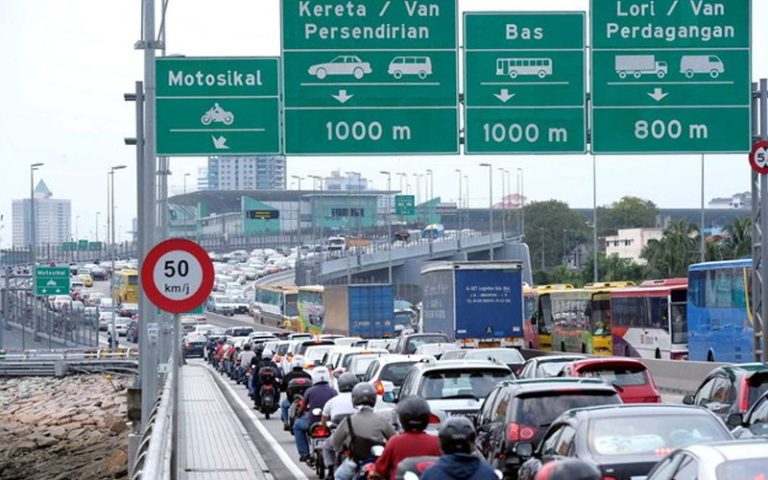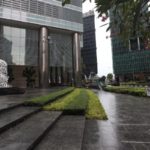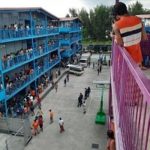How to Cross Singapore Border with PCA Scheme Requirement?

Singapore and Malaysia have finalised arrangements for long-term pass holders and travellers on essential or official business to cross the border. The operational details of the reciprocal green lane (RGL) and periodic commuting arrangement (PCA scheme) will be published and applications will kick off on 10 August 2020. Meanwhile, the two countries have also agreed to develop a proposal for daily commuters crossing the border for work, and are also working out arrangements for cross-border travel for compassionate reasons.
The RGL will enable cross-border travel for essential business and official purposes between both countries. The PCA will allow Singapore and Malaysia residents, who hold long-term immigration passes for business and work purposes in the other countries, to enter that country for work. Eligible travellers will have to abide by the prevailing COVID-19 prevention and public health measures mutually agreed upon by both countries.
What is Periodic Commuting Arrangement (PCA)?
The Periodic Commuting Arrangement (PCA) is a scheme agreed between Singapore and Malaysia to allow work and business-related travel between the two countries via the land border crossings at the Johor-Singapore Causeway and Malaysia-Singapore Second Link. Under the PCA, Malaysia Citizens and Permanent Residents (PRs) with valid Singapore work passes should remain in Singapore for at least 90 days before returning to Malaysia for home leave.
The entry and exit between Singapore and Malaysia must be via Woodlands Checkpoint or Tuas Checkpoint in Singapore. Work pass holders approved under the PCA scheme will serve a Stay-Home Notice (SHN) of at least 7 days and undertake a COVID-19 PCR test. Singapore-based companies that wish to apply for the PCA for their employees may submit their applications from 10 August 2020, 1200 hours onwards.
Who eligible to apply Periodic Commuting Arrangement (PCA)?
Employers can apply for the PCA on behalf of their employees using CorpPass if their employees fulfil the following criteria:
- Are a Malaysia Citizen / Permanent Resident;
- Hold valid long-term passes* for business and work purposes in Singapore; and
- Are willing to spend at least 90 days in Singapore for work upon entry.
How to apply Periodic Commuting Arrangement (PCA)?
The PCA application has to be submitted by the employer on behalf of their employees from 10 August 2020, 1200 hours onwards. Employers may choose a date of entry within a 60-day window of their application. All applications will be processed on a first-come, first-served basis. Employers must submit their applications at least 7 days before their employees’ entry into Singapore.
Employers are advised to have the following information of each employee on hand, before proceeding to submit an application:
- Employee’s FIN
- Expiry Date of Employee’s Work Pass
- Employee’s Intended Date of Entry into Singapore
- Address of Employee’s Accommodation to complete his/her Stay Home Notice (SHN) and
- Details of Contact Person in Company.
Applications will only be processed after payment for the COVID-19 PCR swab test has been made. Payment must be made via credit card. An email alert will be sent to the employer through the contact provided if the PCA application for their employee is successful. The employer will also be informed of the details for their employee’s COVID-19 PCR swab test.
Pre Arrival Safety Measure Requirement
Prior to arrival at the immigration checkpoints, employees approved under the PCA are required to:
- Monitor their health status and do not travel to Singapore if feeling unwell
- Ensure that they enter Singapore on their approved date as stated in their application and PCA approval email
- Ensure that they complete the electronic Health Declaration Card (eHDC)
- Ensure that they download the TraceTogether, Homer and WhatsApp mobile applications on their mobile phone and
- Bring along his/her passport and work pass when entering Singapore.
Employees approved under the PCA can commute from Malaysia’s immigration checkpoint to Singapore via personal transport, via private buses that only ferry Malaysian passengers who will be serving SHN, or by foot. Do note that all prevailing Vehicle Entry Permit (VEP) fees will apply throughout the period of stay in Singapore for personal transport modes
Post Arrival Safety Measure Requirement
After departure, the employees will have to need to choose on taking their personal transport, private buses, taxis or private-hire cars directly from the immigration checkpoint to the declared SHN accommodation. Employees should not taking a public transport and let the driver know ypur stay home notice condition for safety purposes.
During stay home notice, employee is mandatory to remain at least 7 days from the date of entry into Singapore without any excuses. They can only come out to nearest covid 19 testing places based on assign date and time for swab test. During SHN period, employee not even permitted to take any public transport.
After employee done SHN period with negative covid 19 tested, then they can start continue to work as usual and can taking any public transport as needed. Those employee who tested positive covid 19 will immediately undergo medical treatment. Bear in mind, all expese will need be pay by employee or employer subject to MOM requirements.
Safety Measures in Singapore
Employees will be required to abide by prevailing local public health requirements and safe distancing measures throughout their entire stay in Singapore. They will be required to act on MOM’s SMS, which will be sent within 1 to 3 days of his/her arrival, asking him/her to download the Homer mobile application and register their mobile number. The employee must have a thermometer to take and report his/her temperature 3 times a day using the Homer app. They will be allowed to use public transportation only after completing their SHN period and having tested negative for COVID-19.





